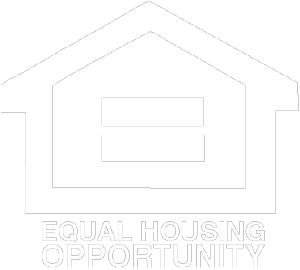How to get approved for a mortgage

Before you start your journey applying for a mortgage loan or start looking for your dream home, you should know a few items about your credit history and financial position. The following will help guide you through the processes.
- First – Know your monthly income (the gross amount you receive before taxes from employment or any other source that is not expected to change and would be considered continuous for at least two years)
- Second – Know the sum of your total monthly debt payments (auto loan payments, credit card minimum payments, student loans, and installment loans of any type.). Items that are not considered would be your phone bill, cable tv, or any debt that is or could be readily canceled at any time.
- Third – Know your credit score and any credit issues in the past few years.
- Fourth – How much cash you have available to put down as a down payment and anticipated closing cost.
- Fifth – Use our simple calculator to estimate how much of a house you can afford. (Once you have gathered the information above we can do this for you without any charge or commitment on your part)
Let's go into more detail about the information needed above.
Q.) How do I calculate my monthly income, and what is needed?
A.) Start by documenting your income. You’ll need to provide at least the last month of pay stubs. If you are self-employed or have a variable income, you can expect this process to take more time and is a bit more involved. You most likely will need to have the last year or two of your tax returns available.
If you are employed and receive a weekly paycheck, take your hourly pay rate and multiply it by the hours you work in the week (do not include overtime). Example: if your hourly pay rate is 18.00 per hour and you work 40 hours per week, then use this formula. 18.00 X 40 hours = 720.00 (gross weekly income). Now to calculate your gross monthly income the formula is this (720.00 weekly X 52 = 37,440.00 per year) 37,440.00 / 12 months = 3,120.00 per month. Important to note: We are always available to assist you with any information needed to get qualified. All at no charge to you!
If you are self-employed or have variable income, the calculations could be more complexed and by you providing us your past two years of personal and business (if ownership is more than 25%) of tax returns with all pages and schedules. We would be able to calculate this for you.
Q.) How do I calculate my monthly debt?
A.) The process for getting approved for the mortgage you want is all about how much debt you have compared to your income. Staying within specific ratios that our lenders use to determine how much you can afford for a mortgage payment.
Large debt payments like an auto loan or high credit card balances can limit your mortgage approval amount. If possible, pay these loans off or, more importantly, avoid taking on any new loan payments. Add the sum of all your monthly payments together - auto loans, installment loans, minimum credit card payments, student loan payments, and any other continuous payments. Household payments like electric bills, water bills, rent, or phone bills are not included.
It is vital that you DO NOT apply for new credit in the few months leading up to your mortgage application! Be prepared to give a letter of explanation if you have.
Q.) How do I get my credit score?
A.) You can obtain both your credit score and credit history report from any of the three major credit report companies (Trans-Union, Equifax, or Experian). You will want to verify there are no errors on your credit report and any new derogatory items like late payments. Please note: We have numerous mortgage programs that you could still qualify for, even if you have a lower credit score.
We are licensed trained professionals that work for you in determining what lending program you can qualify for. We provide custom mortgages to meet the needs of all types of consumer situations. Let us take the fear away and do the work for you.
Q.) How do I determine how much money I will need for a down payment and closing cost?
A.) Each mortgage loan product is different based on your qualifications and eligibility. You could qualify for a no money down loan, but you should expect to cover other costs related to the loan. As a rule, it is always advisable to save as much money as you can to have not only for the down payment but for reserves to make your new mortgage payment in the future if something would happen to your continuous income.
If you have savings, an excellent way to avoid paying private mortgage insurance (PMI) is to have at least 20% down. Although there are mortgages that require a lower down payment (some as little as 3%), other programs could be zero down.
Working with a professional mortgage broker can help you find the perfect mortgage to fit your needs.
Now that you understand what would and could be needed to qualify, the next step is to get Pr-Qualified. A pre-qualification means that based on your credit score, income, and debt, you should be able to get approved for a mortgage. It is informal and non-binding. Plus, this is entirely free, and only the cost of your credit report is required.
As you get closer to buying a home, we will take the pre-qualification a step further and get you pre-approved for a mortgage loan. This process is the best indicator of your ability to get approved for the mortgage. Most sellers will want to see this pre-approval within a few days after you make your formal offer on a home.

